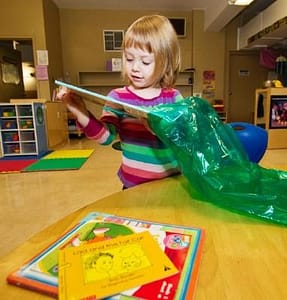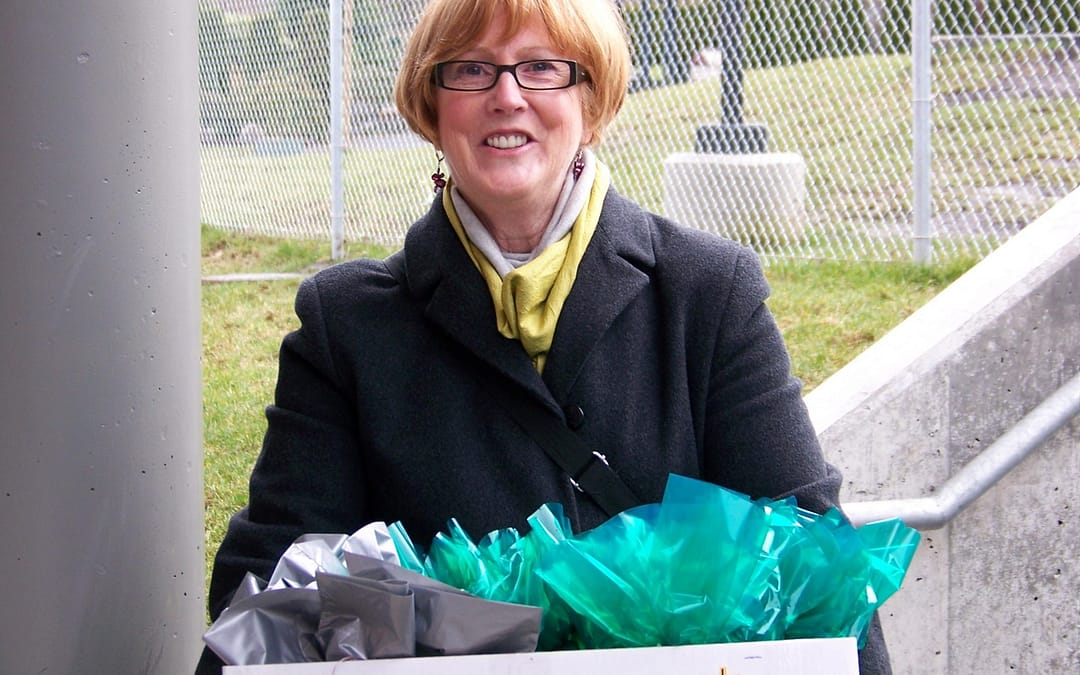September is an exciting time for the “1000 X 5” Project leaders and volunteers! Each fall, we resume weekly work bees in schools where we collect, screen, count, sort, label, and package gift bags of books for families with young children. We have fun while we work and leave each session knowing the service we provide benefits many.
 The prime beneficiaries are children. Children who are regularly read-to from a young age have significantly increased chances of success in school. They have heard millions of words and know how to use them in conversations. They have developed “an ear” for language conventions. They understand that stories have a beginning, middle, and end and know that the story comes from the text, not the reader. Their curiosity has been stimulated; they have learned about natural and imaginary worlds. Vicarious experiences introduce them to human motivation and help develop empathy. By the time they enter Kindergarten, many children have favourite characters and may recognize particular authors and illustrators. These factors foster early literacy development and contribute to a child’s sense of belonging in school because he or she knows what to do when a book is read aloud. Learning how to read and write are natural next steps in the process of becoming literate.
The prime beneficiaries are children. Children who are regularly read-to from a young age have significantly increased chances of success in school. They have heard millions of words and know how to use them in conversations. They have developed “an ear” for language conventions. They understand that stories have a beginning, middle, and end and know that the story comes from the text, not the reader. Their curiosity has been stimulated; they have learned about natural and imaginary worlds. Vicarious experiences introduce them to human motivation and help develop empathy. By the time they enter Kindergarten, many children have favourite characters and may recognize particular authors and illustrators. These factors foster early literacy development and contribute to a child’s sense of belonging in school because he or she knows what to do when a book is read aloud. Learning how to read and write are natural next steps in the process of becoming literate.
Families benefit, too. Reading is stress-reducing; it’s like a “20-minute holiday” from our busy lives. Giving our full attention as we read to children confirms they are valued. Feelings of security and comfort result when we hold and read to a baby on our lap, snuggle side-by-side to read on the couch, and establish routines such as story reading at bedtime. Book-sharing experiences with children enhance opportunities for us to bond with them and them to bond with us.
The people who distribute the “1000 X 5” books report benefits for themselves as well. Strong Start facilitators and other early childhood educators, food bank coordinators, public health nurses, social and outreach workers, librarians, and parenting workshop leaders

The school system benefits. Some children enter school with very limited exposure to books and reading. They don’t know how to participate during story time. They may disengage or become disruptive. These children may require additional personnel and services such as speech/language, learning assistance, or compensatory programs. Such measures are expensive and don’t always achieve desired results. Rather than spending money on interventions once children are in school, the “1000 X 5” projects focus on the more cost-effective practice ofprevention.
The project leaders and volunteers on the Saanich Peninsula, in Victoria, and on the Westshore know our efforts cannot address all the challenges some children and families face. At the same time, we do know that our work reinforces the importance of reading to young children and is making a positive difference in the lives of many.
September is “Literacy Month” in BC. It’s a good time to celebrate family literacy initiatives. We can all do much to ensure even more children will have at least 1000 books read to them by the time they are 5 years-old.
